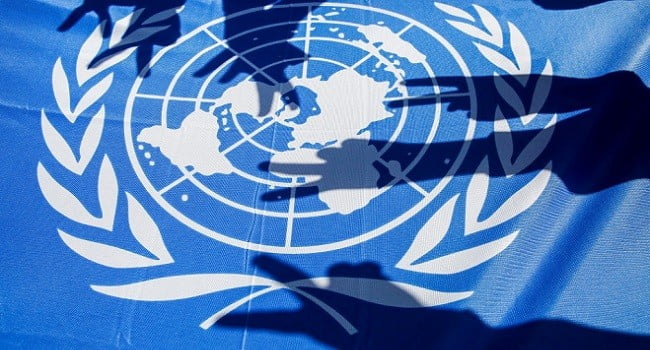Coming to the end of a painful restructuring, Canada’s top manufacturer Bombardier, still heavily indebted, faces the prospect of selling off major divisions just to stay afloat
For weeks, rumours have weighed on investors in the Montreal-based company that it was in talks to sell its rail division to France’s Alstom or another competitor, and its business jet line to American conglomerate Textron.
On January 16, Bombardier announced it was “actively pursuing alternatives that would allow us to accelerate our debt paydown,” while again revising downward its preliminary 2019 revenues.
The company also said it would reassess its joint venture with Airbus, after selling in 2018 a majority stake in its CSeries jetliner to the world’s largest airliner manufacturer (which renamed it A220).
The firm, controlled by heirs of the company’s founder and inventor of the snowmobile in the 1940s, owes more than US$9 billion to creditors.
More than 20 percent of the debt will come due next year, the rest in 2025. Mehran Ebrahimi, an aeronautics specialist at the University of Quebec in Montreal (UQAM), told AFP the sale of a division was “inevitable.”
Bombardier’s “ambitions were greater than its means,” echoed Quebec Economy Minister Pierre Fitzgibbon, agreeing that a selloff was in the cards.
Quebec politics
The Airbus Canada Limited Partnership (ACLP) requires additional cash investments to ramp up production, pushing out its “break-even timeline,” Bombardier said.
Quebec Premier Francois Legault has promised to “do everything” to safeguard 14,000 Bombardier jobs in the Canadian province but has ruled out another multibillion dollar investment in the A220.
It’s a difficult decision politically, since Bombardier supports a cluster of aeronautics suppliers that employ another 40,000 in Quebec.
The Quebec government owns 16.36 percent of ACLP and 30 percent of Bombardier Transportation (rail division).
Michel Nadeau, director of the Institute for Governance of Private and Public Organizations in Montreal, suggested that sales of Bombardier’s Global 7500 business jets “that cater to billionaires” are more cyclical than its trains, but also very lucrative.
Rather, he said, Bombardier Transportation — because it is based in Berlin and employs only 1,500 people in Quebec — would be an easier sell politically.
Trains, however, represent two-thirds of the company’s order book and are “strategically poised to grow,” according to Fitzgibbon.
Regulatory authorities might also reject an Alstom-Bombardier merger.
Head-to-head with giants
Over the past decade, Bombardier invested “colossal sums” to develop three new aircraft: the CSeries, and business jets Global 7500 and Learjet 85, noted Ebrahimi.
The CSeries was the first new design in the 100- to 150-seat category of single-aisle aircraft in more than 25 years, and was to go head-to-head against giants Airbus and Boeing.
It was to be an extension of Bombardier’s regional aircraft program that had been very profitable in the 1990s.
But after Boeing successfully petitioned President Donald Trump’s administration to impose financial penalties on Bombardier to keep it from selling its CSeries planes in the massive US market, the Canadian company turned to Airbus to make use of Airbus’s manufacturing heft and international reach for sales.
Its Learjet 85 program, meanwhile, was discontinued after losing US$2 billion.
Today, 90 percent of Bombardier’s debt can be traced back to those two aircraft programs, said Fitzgibbon.
A natural progression of its aircraft business at the time, the strategic decision to embark on the CSeries proved to be costly, said Nadeau.
“Bombardier never should have tried to compete with Boeing and Airbus,” he said.
“It was a very serious strategic error,” concurred Ebrahimi.
Chief executive Alain Bellemare has acknowledged that the company came close to bankruptcy in recent years, before he launched a major restructuring in 2015, slashing thousands of jobs yet barely touching its debt.
More recently, the company’s rail division has struggled to get new trains delivered on time in Canada and Europe.
Bombardier’s future will be revealed when it releases its annual financial results on Thursday.
But Nadeau lamented, “We’ve been promised a light at the end of the tunnel for five years, that the company would rebound. We were never told it would be sold off piecemeal.”
AFP



